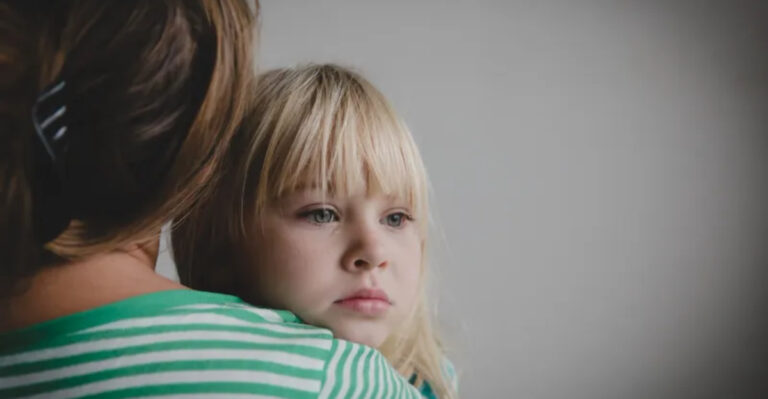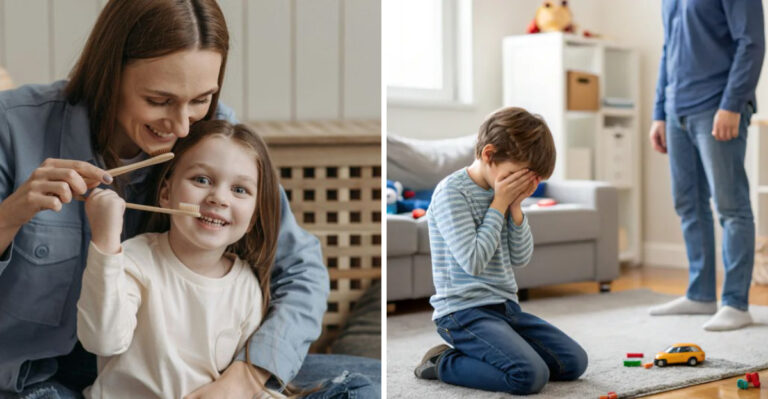9 Heartwarming Things Only Great Parents Hear And 9 Brutal Ones Only Bad Parents Do
Being a parent leaves a legacy—not just through DNA, but through the words your children carry into adulthood. The way you parent shapes how they feel, how they love, how they trust… and eventually, what they say to (or about) you.
Here are 9 beautiful, affirming things great parents often hear—and 9 hard-to-swallow truths kids sometimes say to parents who failed to show up.
Parenting isn’t just about raising children; it’s about nurturing future adults who know they are loved. It’s a journey filled with moments that make your heart swell and others that are downright challenging. Whether it’s a warm “I love you” or a cold reality check, these words are echoes of your parenting legacy.
Let’s explore what makes a parent truly memorable—both for the right reasons and the not-so-right ones. Get ready for a heartfelt dive into the words that linger long after the childhood days are gone.
1. “I always felt safe with you.”

The foundation of great parenting is emotional safety—knowing they could fall apart, and you’d still love them. There’s nothing like the feeling of safety that wraps around a child like a warm blanket. It’s in those gentle hugs, reassuring whispers, and late-night talks when the world feels overwhelming.
It’s the promise that no matter what, they have a fortress to retreat to. Great parents provide this, creating an environment where a child knows they can be vulnerable without fear of judgment. This sense of safety doesn’t just happen; it’s built over time with patience and understanding.
It’s seeing the world through your child’s eyes and making sure they never feel alone in it. When children say they’ve always felt safe, it means the world was just a little less scary because you were there. It’s a testament to your unwavering presence and unconditional love.
2. “You really listened to me.”
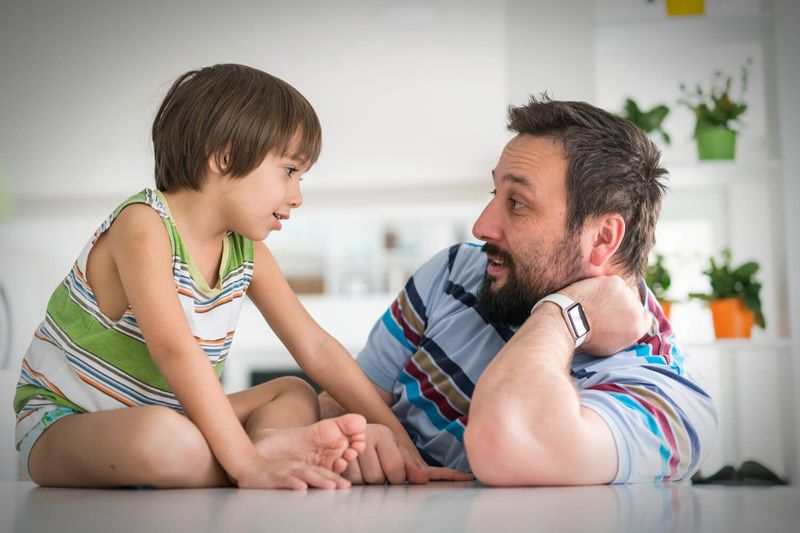
It’s not about always agreeing—it’s about being present, even when it was hard to hear. Listening is an art, and for great parents, it’s a skill honed over countless conversations. Kids remember those moments when you put down your phone, turned off the TV, and gave them your full attention. They might have been rambling about superheroes or sharing their deepest fears, but you were there with open ears.
When children feel heard, it validates their feelings and teaches them their voice matters. This builds confidence and trust, forming a bond that bridges childhood into adulthood. You weren’t just hearing words; you were understanding their world.
And as they grow, this simple act of listening becomes a foundation for open communication, respect, and a lifelong connection. Your ability to truly listen is a gift they’ll carry with them always, shaping how they interact with others.
3. “You made our house feel like home.”

Not just four walls. A space filled with acceptance, comfort, and connection. Home is where the heart is, and you’ve made yours a sanctuary. It’s not about fancy decor or spotless floors but the warmth that fills every room. It’s the smell of cookies baking, favorite blankets on chilly nights, and laughter echoing through hallways.
Great parents infuse their homes with love, making every nook feel safe and welcoming. It’s where family traditions are born and memories are crafted. You’ve created an environment that nourishes the soul, a place your children can always return to, no matter where life takes them.
This feeling of home stays with them, a comforting reminder of the love and security they’ve always known. It tells them they’re not alone, and they never really have to say goodbye. A home, in your hands, is the heart’s true dwelling place.
4. “I knew I could come to you with anything.”

This means you created a relationship where honesty didn’t feel dangerous. Children need to know that their thoughts and feelings are safe with you, no matter how big or small. You’ve built a bridge of trust by being open, non-judgmental, and compassionate. This isn’t always easy, especially when the topics get tough.
But great parents know that fostering open communication means putting aside personal discomfort to understand their child’s world. When they say they could come to you with anything, it’s a reflection of the trust and respect you’ve nurtured. It shows that you’ve been their confidant, their sounding board, and their safe harbor.
This openness prepares them to face the world with honesty and integrity. They’ve learned to speak their truth without fear, knowing they have someone who’ll listen without prejudice. This assurance is a powerful testament to your role in their lives.
5. “You believed in me—even when I didn’t.”

The right words at the right moment can shape a child’s future forever. In those moments of doubt and insecurity, your unwavering belief became their anchor. You’ve been the voice that lifts them when they’re too scared to take the leap.
Great parents recognize potential even when it’s hidden under layers of fear or uncertainty. They see what their children can become and gently guide them towards it. Your belief gave them the courage to dream bigger, try harder, and never give up.
This kind of support plants seeds of resilience and self-worth, sprouting into confidence that carries them through life’s challenges. Knowing you believe in them, even when they struggled to believe in themselves, is a gift that keeps on giving. It taught them to face their fears head-on, with the knowledge that someone is always in their corner, cheering them on with love and faith.
6. “You taught me what love should look like.”
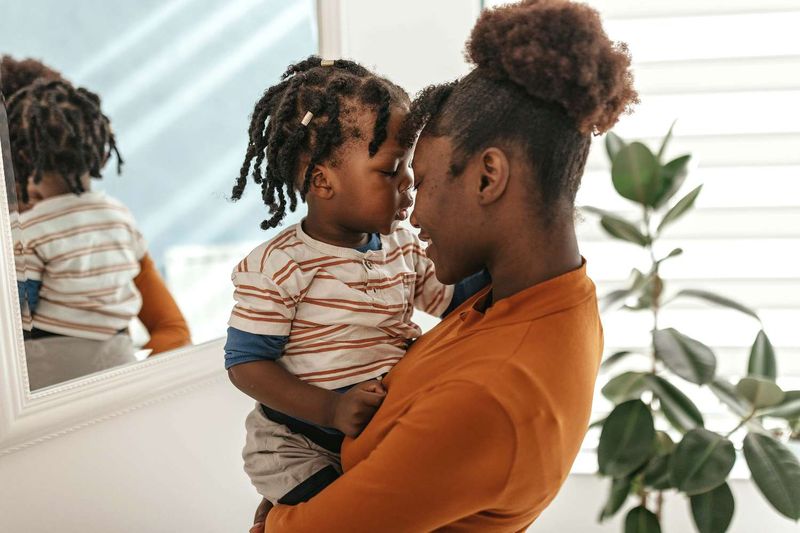
And they’ll carry that model into every friendship, romance, and parenting choice they make. Love isn’t just a feeling; it’s an action, a choice made every day. You’ve shown them through your actions what love truly means. It’s in the small gestures—hugging them when they’re sad, celebrating their joys, and being patient in their moments of frustration.
Great parents understand that love is the foundation of all healthy relationships. By demonstrating love that is kind, patient, and unconditional, you’ve set a benchmark for how they should love others and themselves. Your example becomes the blueprint they follow, shaping their interactions and connections.
This is a legacy that endures, influencing how they treat their partners, friends, and eventually, their own children. It’s a lifelong lesson that begins with you, offering them a lens through which to view the world with empathy, kindness, and compassion.
7. “You let me be who I am.”

Great parents nurture identity—not force conformity. In a world eager to mold children into societal expectations, you’ve been their greatest ally in authentic self-expression. You’ve encouraged them to explore their interests, even when they didn’t align with your own.
By celebrating their uniqueness, you’ve given them the freedom to explore who they truly are. This freedom is a powerful force, allowing them to discover passions and develop a strong sense of self-worth. You’ve taught them that being different is not just okay; it’s wonderful.
This acceptance fosters an environment where they feel loved for who they are, not for who they might become. It sends a message that their individuality is valued and respected. As they grow, this foundation empowers them to live life true to themselves, without fear of judgment. Your support in their self-discovery is a gift they’ll cherish forever.
8. “You showed up when it mattered most.”
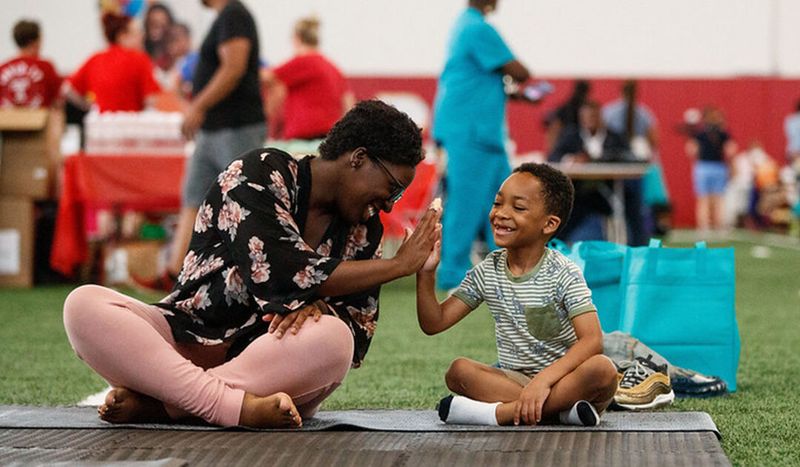
In the hard moments. When it was inconvenient. And they never forgot. Presence is the simplest form of love, yet its impact is profound. You’ve been there—through the tears, the triumphs, and the ordinary days that make up a life.
Great parents understand that showing up isn’t just physical; it’s emotional. It’s about being fully present, letting them know they are never alone in their struggles or successes. Your presence was the reassuring constant in a world full of uncertainties.
These are the moments that stay etched in their hearts long after they’ve left the nest. It’s in your unwavering support at their recitals, your cheers at their games, and your quiet strength during their setbacks. You’ve taught them that they are worthy of love and attention, no matter what. This legacy of presence is one they’ll carry forward, remembering you as their constant in a changing world.
9. “You’re one of my favorite people.”

The kind of love that evolves into deep friendship later in life? That’s the legacy of a great parent. As kids grow up, relationships with parents often transition from caretakers to cherished friends. You’ve built a connection based on mutual respect, understanding, and shared experiences.
This doesn’t happen overnight. It’s the result of years spent nurturing a bond that transcends the typical parent-child relationship. You’ve been a mentor, a confidant, and a source of unending support. By treating them as equals and valuing their opinions, you’ve shown them that they are not just your children, but individuals you genuinely enjoy spending time with.
This kind of relationship is a testament to the love and trust you’ve cultivated. It means that when they think of you, it’s with fondness and admiration. You’re more than just a parent; you’re someone they want in their life, forever and always.
10. “You made me feel like nothing I did was ever good enough.”

Perfectionism, criticism, and control turn love into performance. This harsh reality is one many children of bad parents have to face. When nothing seems to meet expectations, childhood becomes a relentless quest for approval that’s always just out of reach.
The constant critique can strip away a child’s confidence, leaving them feeling inadequate and lost. Instead of nurturing growth, this mindset fosters resentment and self-doubt. Children are left to think that love must be earned, and perfection is the only acceptable result.
These feelings don’t vanish with adulthood; they linger, casting a shadow over achievements and relationships. It’s a cycle that’s hard to break, as the fear of failure becomes ingrained. The impact of these words goes beyond the moment—they shape a lifetime of insecurity and mistrust. In this environment, a child is never allowed to just be, to explore, or to grow without judgment.
11. “I was more scared of you than I ever was of the world.”
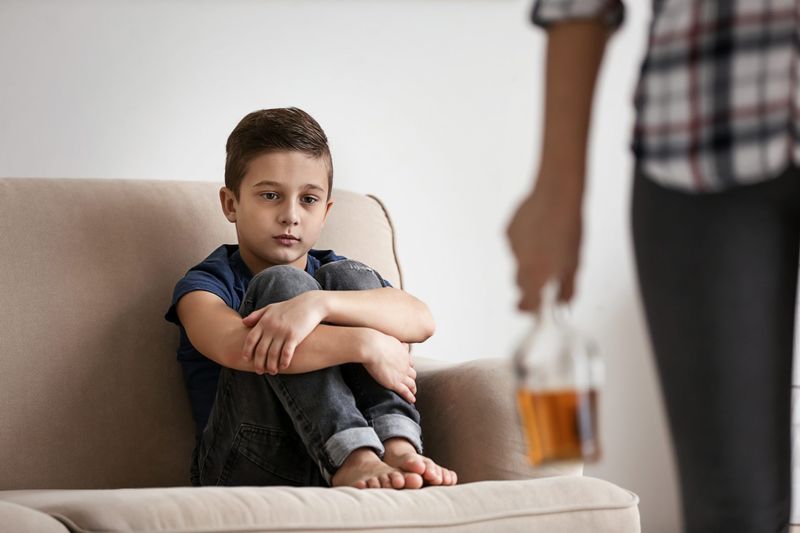
When home feels like the battlefield, children grow up with emotional armor. This brutal truth reveals a home environment where fear overshadows love and understanding. Instead of finding solace, children face criticism, anger, and unpredictability behind their own doors.
The world outside, though daunting, becomes a safer place compared to the tension and anxiety experienced at home. This fear becomes a constant companion, shaping how they interact with others and perceive authority figures. It teaches them to hide their true selves to avoid conflict and pain.
The emotional scars from such a childhood don’t heal easily. They affect relationships, self-esteem, and emotional health well into adulthood. The fear instilled in these formative years creates a barrier to genuine connection and happiness. It’s a haunting memory that reminds them of what home should never be—a place of fear rather than refuge.
12. “You cared more about what people thought than how I felt.”

Image over intimacy leaves lifelong scars. When parents place more value on public perception than their child’s feelings, they send a message that appearances are more important than genuine connections. This prioritization often leads to emotional neglect and a feeling of invisibility.
Children learn that their worth is tied to how well they fit into the image their parents want to project. This can stifle individuality, leading to a lifelong struggle to find authentic self-worth. The lack of genuine emotional support from parents can leave children feeling isolated and unimportant.
The need to maintain an image can overshadow the nurturing relationship that children desperately need. This disconnect fosters resentment and a sense of betrayal, as children feel their emotional needs are secondary to their parent’s social status. It’s a painful reminder of the superficial love they received, one that prioritized perception over genuine care.
13. “You never apologized.”

Bad parents confuse authority with immunity. Great parents know humility builds trust. Refusing to apologize can fracture a child’s trust, creating an emotional rift that’s hard to mend. It sends the message that pride is more important than relationship.
Apologies aren’t a sign of weakness; they’re a bridge to understanding and healing. Acknowledging mistakes and showing vulnerability teaches children accountability and compassion. When parents refuse to say they’re sorry, children learn that their feelings and experiences aren’t valid to those they love.
This lack of acknowledgment can lead to resentment and a feeling of emotional abandonment. It’s a lesson that mistakes must be hidden and never addressed. Without the healing power of an apology, relationships remain strained and trust erodes over time. The absence of these words can leave a void, a longing for the connection and understanding that was denied in moments of pride.
14. “You guilted me into loving you.”
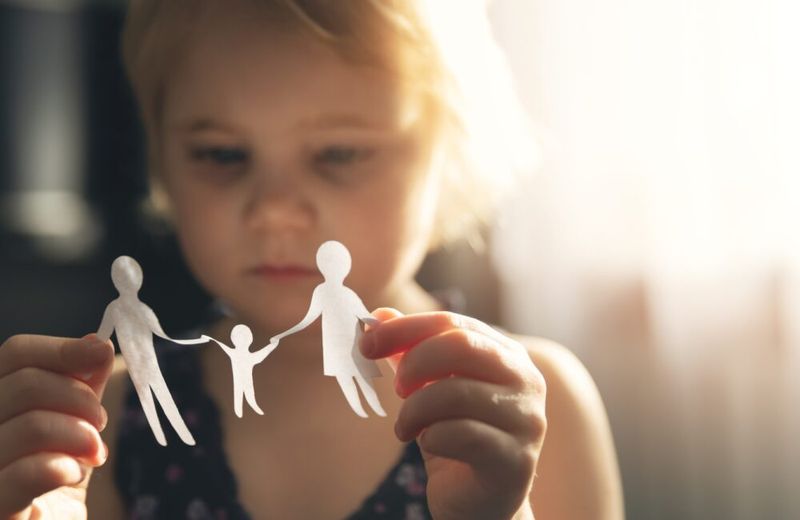
Love that’s weaponized becomes obligation—not connection. When parental love is conditional, based on guilt or manipulation, it becomes a burden rather than a source of comfort. This emotional manipulation tricks children into believing that affection must be earned or is a debt to be paid.
Instead of fostering genuine love, this dynamic breeds resentment and confusion. Children may stay in relationships out of obligation, not because they feel loved or valued. This creates a toxic cycle where love is measured by compliance rather than connection.
The impact of such manipulation extends into adulthood, affecting how children form and maintain relationships. They may struggle to distinguish between genuine care and obligation, leading to unhealthy emotional bonds. This pattern of guilt-based love stifles true intimacy and keeps children in a constant state of emotional turmoil, always questioning their worthiness of love and affection.
15. “I had to raise myself.”

Neglect doesn’t always look like absence—it looks like emotional abandonment, too. When children feel like they’ve had to grow up too fast, it’s often because the support system meant to guide them was missing in action. This forced independence creates a façade of strength, while inside, they grapple with feelings of loneliness and resentment.
Bad parents may be physically present but emotionally unavailable, leaving children to navigate life’s challenges on their own. This neglect teaches them to rely only on themselves, robbing them of the comfort and guidance of a nurturing presence.
The weight of raising oneself leaves deep imprints on a child’s psyche, affecting their relationships and self-perception. They may struggle to trust others or to allow themselves to be vulnerable. These children carry the burden of unmet needs and unresolved emotions, a reminder of the love and support that was absent when it was needed most.
16. “You made me feel like your feelings mattered more than mine.”

Emotionally immature parents flip the roles and call it love. When a child grows up believing their feelings are less important, it creates an imbalance that can affect their self-worth and emotional health.
In this dynamic, children learn to suppress their emotions to keep the peace or to manage their parent’s needs. They become caregivers at an age when they should be the ones receiving care. This role reversal places an undue burden on them, stunting their emotional development.
The impact of feeling secondary to a parent’s emotions can lead to difficulties in setting boundaries and advocating for themselves. As they mature, they may find it challenging to express their needs and desires, fearing rejection or conflict. This lingering sense of unworthiness affects their ability to form healthy, balanced relationships, echoing the imbalance they experienced growing up.
17. “You made me question my worth for years.”

Cruel comments, emotional withdrawal, and inconsistent affection leave a lasting impact. When children grow up in an environment where love feels conditional, their self-esteem takes a hit. They start to question their worth, wondering if they’ll ever be good enough.
Bad parents often leave scars without realizing it. Their words and actions can undermine a child’s confidence, leading to years of self-doubt and insecurity. This can manifest in various ways, from striving for perfection to constant self-criticism.
The journey to self-acceptance becomes a long and winding road, overshadowed by the echoes of past hurts. These children often struggle with their identity, trying to fit into molds that never quite feel right. Understanding their worth becomes a lifelong quest, as they work to silence the negative voices instilled during childhood. It’s a painful reminder of how deeply words and actions can affect a child’s sense of self.






